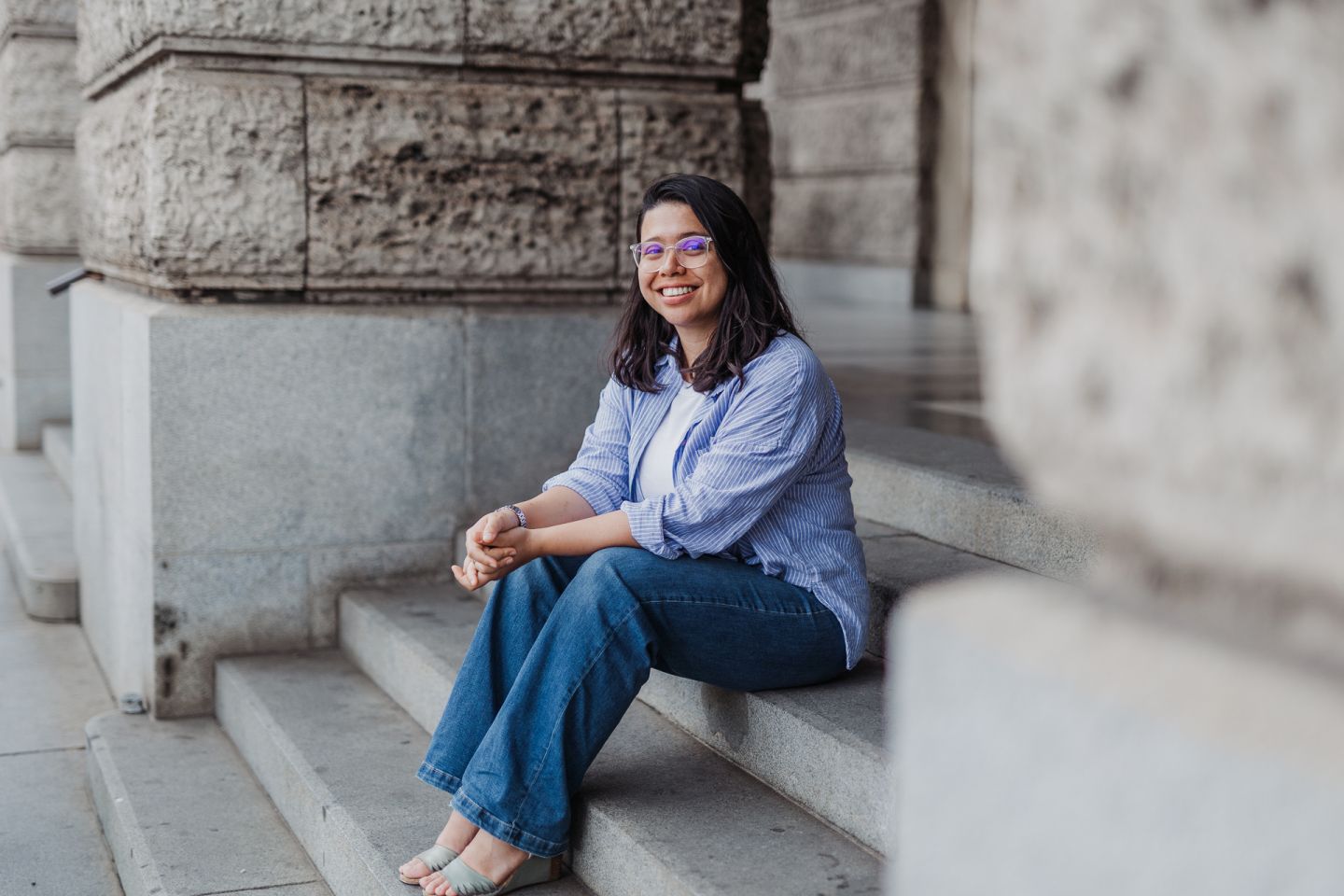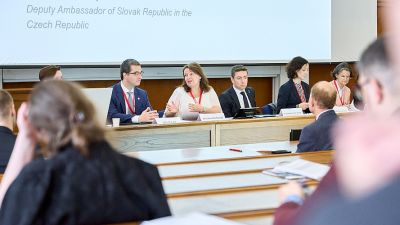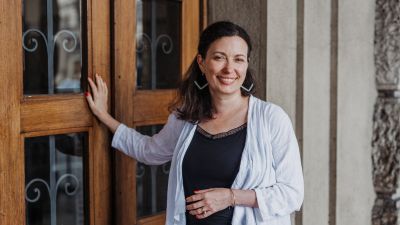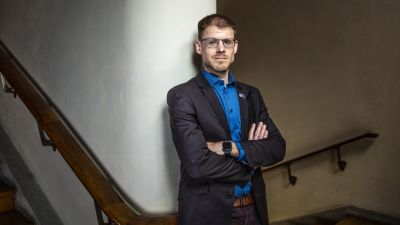During her studies, Rose Smith, originally from the Philippines, travelled around the world. She has lived, worked, and studied across multiple countries, including the Czech Republic, the Netherlands, the United Kingdom, Russia, Chile, and her native Philippines, and has conducted research in the Czech Republic, Hungary and Poland. She has also participated in teaching activities at University College London and delivered a guest lecture at the University of Groningen, Netherlands, alongside her teaching at Charles University in Prague.
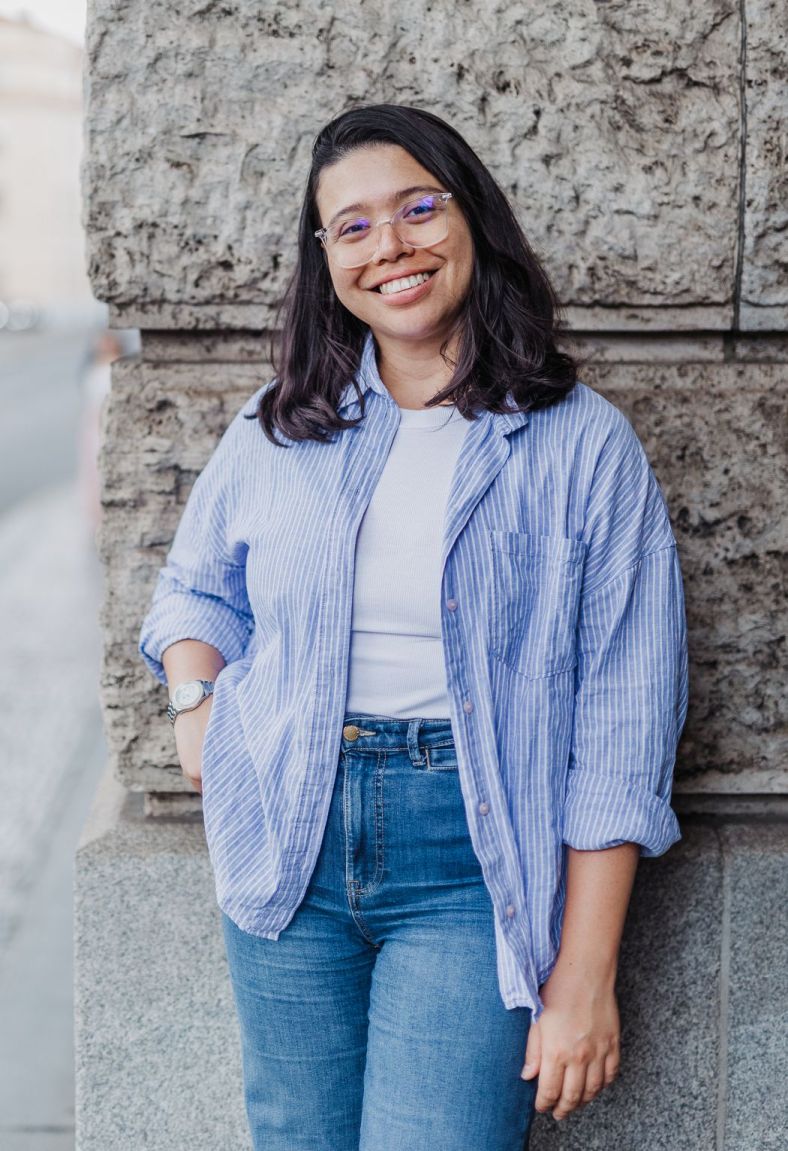 For her Master’s degree at the Faculty of Social Sciences, she studied the Museum of Communism in Prague. “My thesis advisor, Kateřina Králová, who is extremely supportive and kind, asked me why I don’t do a PhD here. And I thought, I do enjoy studying things, I enjoy research, so I applied for my PhD. I stayed, and now I have a Czech husband, and I’m trying to integrate. I do see my future here in the Czech Republic. So I was looking for opportunities to stay and to fully integrate myself into Czech academia. An opportunity then opened in the Czech Academy of Sciences, and I took it, because this is my third ‘last year’ doing my PhD, and I hope that this is the last last year,” she laughs.
For her Master’s degree at the Faculty of Social Sciences, she studied the Museum of Communism in Prague. “My thesis advisor, Kateřina Králová, who is extremely supportive and kind, asked me why I don’t do a PhD here. And I thought, I do enjoy studying things, I enjoy research, so I applied for my PhD. I stayed, and now I have a Czech husband, and I’m trying to integrate. I do see my future here in the Czech Republic. So I was looking for opportunities to stay and to fully integrate myself into Czech academia. An opportunity then opened in the Czech Academy of Sciences, and I took it, because this is my third ‘last year’ doing my PhD, and I hope that this is the last last year,” she laughs.
Currently, Rose is about to complete her joint-degree doctorate at both Charles University and the University of Groningen in the Netherlands. However, she has already earned a position as a junior researcher at the Czech Academy of Sciences, at the Institute of Ethnology. An active individual in all respects, she also served as the newsletter editor for the Memory Studies Association and is a member of the Czech Studies Association, the COST Action Slow Memory Project, and the University Association for Contemporary European Studies.
“My research focuses on how museums in Budapest, Prague, and Warsaw represent the communist past through my concept of the ‘post-communist exotic.’ I examine how the memory of the Communist era is repackaged in museum exhibitions to serve contemporary political, social, and economic purposes, offering new insights into how the Communist past is represented in the context of national, European, and global memory politics,” Rose describes her field of focus. “Through case studies in the Czech Republic, Hungary, and Poland, I explore how exhibitions strategically exoticize the communist era, aligning with broader political, cultural, and commercial agendas.”
“The joint degree programme has been an experience of learning
to think across disciplines, cultures, and institutions.”
She has turned her attention to nine museums in Budapest, Prague, and Warsaw, analysing their narratives, symbolism, and emotional engagement. “I am interested in how the commodification of historical memory intersects with contemporary debates on nationalism, Europeanization, and global heritage tourism. Drawing on post-colonial theory, I interrogate how museums mediate histories of power, marginality, and cultural hierarchy, while also engaging with interdisciplinary discussions on the role of museums in shaping public history and the ways in which historical narratives are mobilized for political and economic purposes.”
With her background in political science, European studies and political philosophy, as well as area studies, she finds herself adopting a rather multidisciplinary approach. That is why, for example, the Memory Studies Association, and memory studies in general, being quite interdisciplinary, gives her a sense of community sharing similar interests, offering support, different perspectives and collaboration without competition.
“I like curating stories, I like to study how people communicate; for instance, a museum consists of visual and textual communication, it is, in fact, experiential communication. You curate spaces and thus create an experience. And I like analysing it. I am currently focusing on the memory of communism, but overall, I am interested in analysing communication – what people or institutions want to say and what they want me to think or to feel. It could be propaganda, but it could also be a piece of art. And here I’m in memory studies – how do people want to talk about the past? What about the past do they use? What do they omit? What do they highlight? So, I think it’s quite interesting to see how we shape our own world socially. Social politics are also interesting – not only nations and governments, but the ways in which people try to gain power over each other in one-on-one communication,” she outlines the interest guiding her research.
Now, how exactly did she come to pursue a joint degree? Let us hear from her:
During the early stages of my PhD studies at Charles University, our institute announced that it was signing a cotutelle agreement with the University of Groningen for doctoral students. The prospect immediately caught my attention. It struck me as a rare opportunity to broaden the scope of my doctoral training while experiencing academic life in the Netherlands. Once I learned the details of the program, I knew without hesitation that I wanted to participate. I applied right away and was fortunate to be accepted.
The cotutelle program enables doctoral candidates to be enrolled at two universities simultaneously, working under the guidance of supervisors at both institutions, and ultimately earning a doctoral degree from each. For me, this meant that in addition to my studies at Charles University, I would also become a PhD candidate at the University of Groningen. While the formal benefit of two degrees is significant, what I value most is the intellectual richness, such as access to two academic environments, two sets of resources, and two distinct scholarly traditions. This arrangement has been particularly meaningful given the interdisciplinary nature of my research; my advisor at Charles University specialises in history, while my supervisors at Groningen are rooted in cultural studies. Working between these two approaches has pushed me to think more broadly, bridging methods and perspectives that are often treated separately. It has deepened the quality of my research and sharpened my awareness of how disciplines can enrich one another. At the same time, pursuing a cotutelle is not only an academic journey but also a personal and professional challenge. Navigating two systems, with their different expectations and cultures, has required flexibility and resilience, which are skills I have come to value as much as the academic training itself.
A key element of the program was spending a semester in Groningen. The university supported me with a living allowance, which made this possible, though the housing shortage in the city posed a challenge. I was very fortunate to sublet the apartment of another PhD student who was leaving for her own research stay in the United States. That bit of good luck eased what might have been a stressful transition.
My semester in Groningen turned out to be immensely rewarding. The university provided me with an office, which immediately gave me a sense of belonging and integration into the academic community. I also joined several social and professional gatherings, which included the traditional borrel, where I met other early-career researchers. These encounters were not only enjoyable but also intellectually stimulating, giving me a glimpse into the breadth of research being carried out across disciplines.
Perhaps the most striking aspect of my stay was the chance to immerse myself in Dutch academic culture. Experiencing it firsthand was fascinating, not only as a PhD student navigating a new environment but also as a social scientist interested in how institutions and cultures shape knowledge production. Dutch academic life impressed me with its spirit of open dialogue, collegiality, and emphasis on collaboration. Observing and participating in that culture gave me new insights into the diversity of academic practices in Europe and encouraged me to reflect critically on my own academic environment in Prague.
Ultimately, I see the joint degree programme as far more than the pursuit of a double degree. It has been an experience of learning to think across disciplines, cultures, and institutions. It has taught me adaptability, broadened my intellectual horizons, and widened my network of support as I write my dissertation. More than anything, it has reinforced my conviction that scholarship thrives when it crosses disciplinary, institutional, or national boundaries.
| Mgr. Rose Smith, M.A. |
| Her academic foundation includes an International Master’s in Economy, State & Society from the University College London’s School of Slavonic and Eastern European Studies and Charles University, a Master’s in Political Philosophy from Ural Federal University in Russia, and a dual Bachelor’s in Political Science and European Studies from Ateneo de Manila University in the Philippines. Currently, she is pursuing her PhD at the CU Faculty of Social Sciences’ Department of Russian and East European Studies. Her research is situated at the intersection of museum and memory studies, with a focus on how museum representations of the Communist past shape collective identities. Rose’s work centres on Central European countries, particularly the Czech Republic, Hungary, and Poland. She is currently a Junior Researcher at the Institute of Ethnology’s Department of Memory Studies at the Czech Academy of Sciences, working on the OP JAC project The Land Gone Wild: Archaeological and Transdisciplinary Research on Resilience Strategies in the 20th Century. She is also actively engaged in several international research collaborations, including the Research Centre for Memory Studies at the Institute of International Studies and participating in initiatives with the Memory Studies Association and the COST Action Slow Memory project. |
